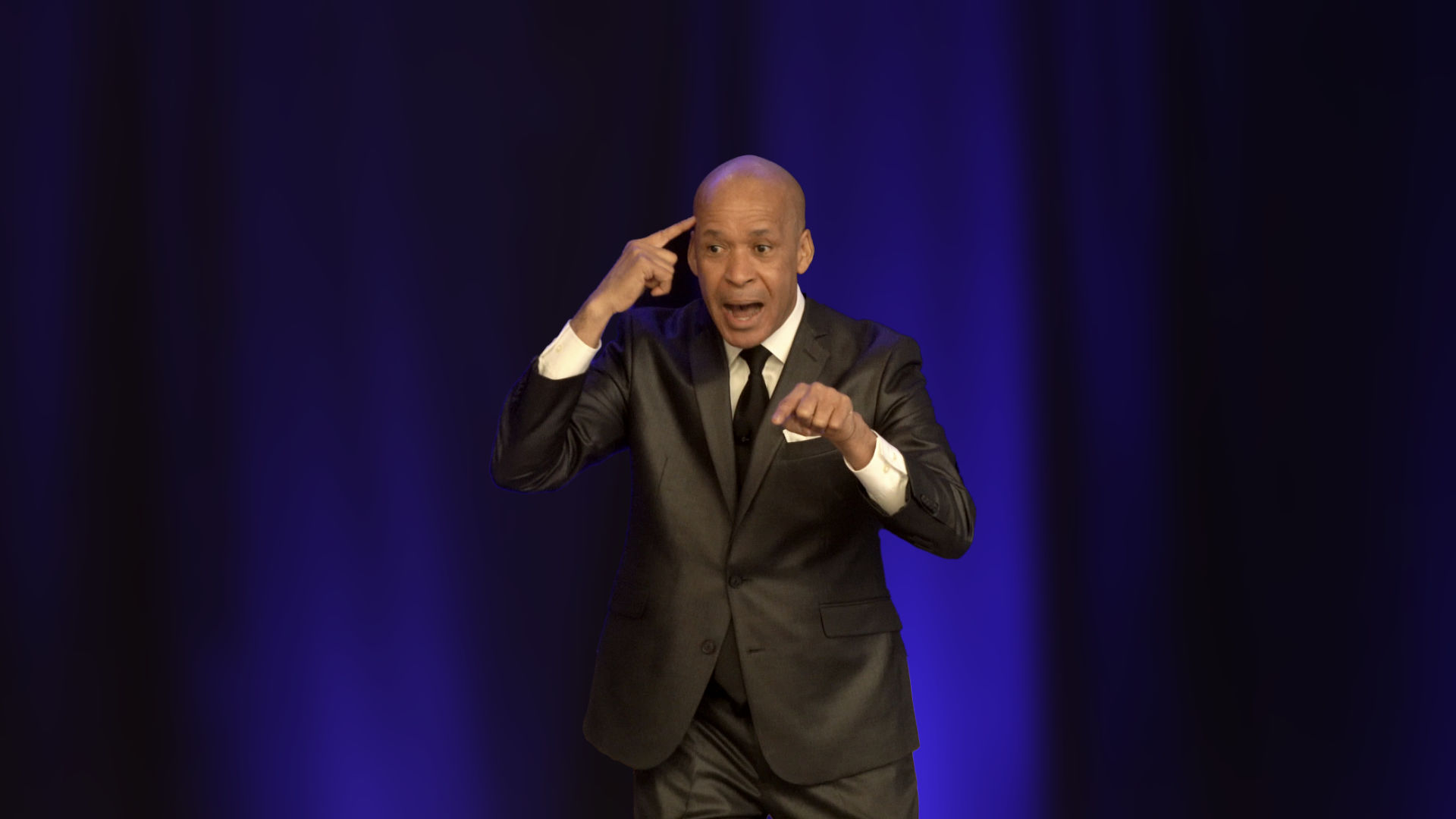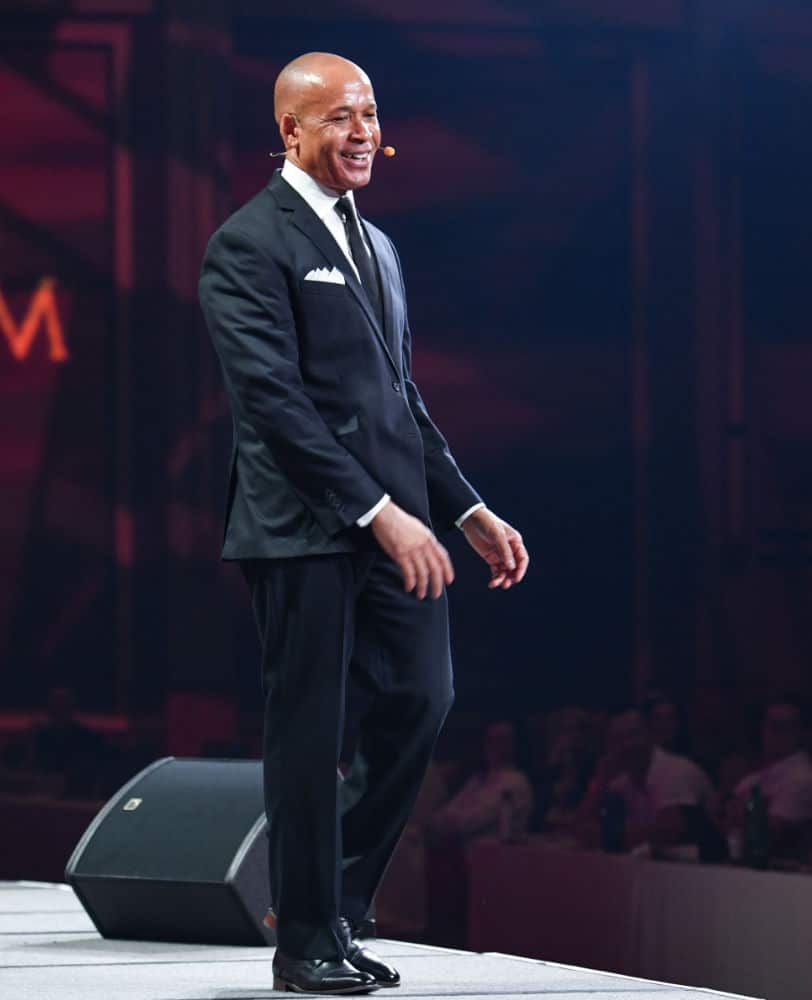Booking a motivational speaker can make or break your event. The right speaker sets the tone, engages the audience, and leaves people talking for months. The wrong speaker drains the energy, flattens the mood, and makes people wonder why they came.
Here is the truth: most event planners go about this decision the wrong way. They choose based on celebrity status, slick promo reels, or the cheapest fee they can find. The brain loves shortcuts, but in this case, those shortcuts lead to regret.
A speaker is not just a slot on your agenda. They are the heartbeat of the event. Neuroscience shows that people remember experiences by their peak moments and the ending.
Your audience will not remember every breakout session or every meal. They will remember how they felt during the keynote. That feeling becomes the story they tell afterward.
If you want your event to be unforgettable, you must choose wisely. Below are five psychology-backed criteria to help you pick the right motivational speaker every time.
1. Authentic Stories Anchor the Brain
The brain craves stories. Neuroscientists call this “neural coupling.” When someone shares a vivid story, the listener’s brain activity mirrors the storyteller’s. It creates instant connection.
This is why authentic life experience is the gold standard in motivational speaking. A speaker who has walked through real struggle and triumph can ignite emotions that statistics never will.
The wrong way: hiring someone who recites theories or motivational quotes without lived experience. The audience’s brains tune out within minutes.
The right way: look for a speaker whose stories are rooted in real life. They should be able to move seamlessly from their personal journey to lessons that resonate with your audience’s challenges.
When authenticity meets storytelling, the brain leans in and stays engaged.
2. Commanding Attention is a Biological Skill
Within 90 seconds, your audience has decided if they will listen. The amygdala—the part of the brain that scans for relevance—decides quickly whether this speaker is worth attention.
The wrong way: hiring someone who strolls to the podium, reads notes, and drones through slides. The brain perceives it as irrelevant and disengages. Phones come out. Side chatter begins.
The right way: choose a speaker who commands attention from the first breath. They should use humor, curiosity, or a bold statement to trigger dopamine in the brain, which locks in focus.
Movement, eye contact, and vocal variety keep that attention alive.
When a speaker has mastered presence, you feel the room shift. Distraction disappears. The audience becomes one heartbeat. That is when transformation begins.
3. Customization Signals Relevance
The human brain is wired to filter out anything that does not feel personally relevant. Event planners often miss this by hiring speakers who recycle the same talk everywhere they go.
The wrong way: settling for a canned keynote with generic messages that could apply to anyone, anywhere. The audience senses it is not for them, and their brains check out.
The right way: choose a speaker who studies your audience ahead of time. They should know the industry language, the pain points, and the aspirations of the group. Customization tells the brain, this is for you.
When a message feels personally tailored, oxytocin is released, deepening trust and emotional connection. That is when audiences lean in and feel like the speaker is speaking directly to them.
4. Professionalism Reduces Planner Stress
As an event planner, your cognitive load is already maxed out. You are managing details, logistics, and last-minute surprises. The last thing you need is a speaker who adds to the stress.
The wrong way: working with someone who is late, unclear in communication, or difficult backstage. This spikes your cortisol, the stress hormone, and leaves you distracted from the bigger picture.
The right way: hire speakers known for professionalism. They should be responsive, clear, and adaptable. They should treat your staff with respect and show up prepared.
When the speaker removes stress, your brain is freed to focus on creating magic for the audience.
A speaker should not just inspire your audience. They should inspire confidence in you as the planner.
5. A Message That Sticks
The human brain remembers based on the Peak-End Rule. People recall the emotional high points and the ending more than the middle.
If your speaker does not deliver a strong emotional peak and a memorable close, the event fizzles in memory.
The wrong way: booking a speaker who entertains for 45 minutes but leaves no lasting impression. The dopamine spike fades, and the message disappears.
The right way: choose a speaker who balances inspiration with practical tools. They should give stories that create emotional peaks and frameworks that stick in memory.
The best speakers end with clarity and hope, leaving the audience with a final impression that becomes the story they carry home.
That is what turns a good event into a legendary one.
Wrong Brain Wiring vs Right Brain Wiring
Let’s break this down through psychology.
Wrong wiring: Planners choose a famous name because of the dopamine hit of recognition. The audience’s brain, however, disengages if the content lacks relevance.
Right wiring: Planners choose based on story, connection, and customization. The audience’s brain lights up with dopamine, oxytocin, and serotonin — the cocktail of memory, trust, and well-being.
The brain decides emotionally, then justifies logically. Choose a speaker who creates emotional resonance first, then delivers logical tools your audience can use.
Quick Checklist for Planners
Set featured imageWhen in doubt, use this acronym: C.A.R.E.
Credibility: Do they speak from authentic life experience?
Attention: Can they command the room from the first moment?
Relevance: Do they tailor their message to your audience?
Ease: Will they make your job easier through professionalism?
If the speaker checks these boxes, you are setting your event up for success.
A Motivational Speaker is Anchor
Your keynote speaker is not just another item on the agenda. They are the emotional anchor of your event.
The brain remembers how it felt more than what it heard. That means your choice of speaker will define the story your audience tells long after the lights go down.
Choose with psychology in mind. Choose with the brain in mind. And choose with the audience’s transformation in mind.
Frequently Asked Questions About Choosing a Motivational Speaker
1. How do I choose the right motivational speaker for my event?
Choose based on five criteria: authentic life experience, the ability to command attention quickly, customization to your audience, professionalism, and a lasting message. Do not choose only by fame or fee. The right speaker creates transformation, not just entertainment.
2. What criteria should I use to book a keynote speaker?
Look for credibility, attention-grabbing skills, relevance to your audience, ease of working with, and impact that sticks. An easy acronym to remember is C.A.R.E. (Credibility, Attention, Relevance, Ease).
3. What mistakes should I avoid when hiring a motivational speaker?
Avoid choosing solely based on celebrity status, going with the cheapest option, or booking without references. Also avoid speakers who deliver canned, one-size-fits-all keynotes that ignore your audience’s unique challenges.
4. What makes a motivational speaker effective at conferences?
An effective speaker creates emotional peaks, shares authentic stories, uses humor and connection to engage, and closes with clarity and hope. They should leave your audience inspired and equipped with tools they can use right away.
5. How do I make my conference unforgettable?
The speaker is only one part of the puzzle. To design a truly unforgettable event, see our companion resource: 7 Keys to Hosting Conferences People Remember for a Lifetime.





0 Comments